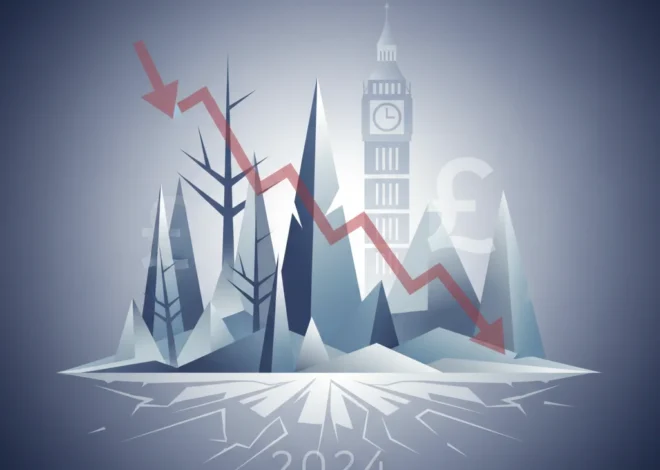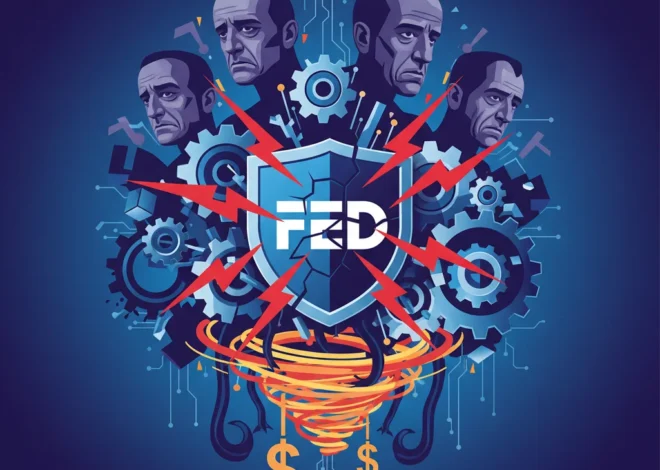
The People’s Budget: Decoding Public Demands in a High-Stakes UK Economy
As the UK government prepares its next Budget, the national discourse is a symphony of competing demands, a reflection of a populace grappling with a complex economic landscape. From students on modest incomes to seasoned business leaders, every citizen has a stake in the Chancellor’s decisions. A recent BBC News report captured this sentiment perfectly, highlighting a diverse range of public wishes that paint a vivid picture of the nation’s financial pressures and aspirations.
One student, earning £22,000, called for free bus travel. A retired business owner hoped for support for savers. These individual pleas, while deeply personal, are microcosms of a much larger challenge: how does a government balance the immediate needs of its people with the long-term imperatives of fiscal stability? This is not merely a question of balancing the books; it’s a complex equation involving macroeconomic strategy, public welfare, and market confidence.
In this analysis, we will deconstruct these public demands, placing them within the broader context of the UK’s economic reality. We will explore the Chancellor’s dilemma, the potential impact on the stock market and investing, and how innovations in financial technology might offer new pathways to prosperity. This is more than a budget preview; it’s a deep dive into the intersection of personal finance, national policy, and the future of the UK economy.
The Voices from the Ground: A Microeconomic Snapshot
To understand the macroeconomic landscape, we must first listen to the microeconomic stories. The requests highlighted by the BBC are not abstract economic theories; they are born from the daily realities of managing household budgets in a high-inflation environment.
The Push for Accessibility and Affordability
The call from a student for free bus travel is particularly telling. For someone on a £22,000 salary, the cost of commuting can consume a significant portion of their disposable income. This request speaks to a broader theme of social mobility and the cost-of-living crisis affecting young people and low-income workers. The economic implication is direct: reducing transport costs frees up capital for other forms of consumption, saving, or investment, potentially providing a small but meaningful stimulus to local economies. However, such a subsidy represents a significant fiscal commitment, raising questions about funding, efficiency, and its impact on municipal budgets.
Concerns of Savers and Taxpayers
At the other end of the spectrum are concerns about savings and taxation. Retirees and diligent savers often feel penalized by low interest rates and taxes on investment income. Their desire for a more favorable savings environment reflects a need to protect wealth from inflation’s corrosive effects. Similarly, middle and higher-income earners are increasingly vocal about “fiscal drag”—the phenomenon where wage inflation pushes people into higher tax brackets that haven’t been adjusted in line with inflation. This stealth tax quietly erodes purchasing power and can act as a disincentive to work and investment.
These varied perspectives illustrate the fundamental tension in fiscal policy. A decision that benefits one group can often place a burden on another, forcing the government into a delicate and often politically charged balancing act.
Beyond the Headlines: Decoding the £22 Energy Bill Drop and Its Ripple Effect on the UK Economy
The Chancellor’s Crucible: Navigating Economic Realities
While the public’s requests are emotionally resonant, the Chancellor must operate within the rigid constraints of the national economy. The UK is currently navigating a period of sluggish growth, persistent inflation, and a national debt that remains at historically high levels. According to the Office for Budget Responsibility (OBR), the government’s fiscal headroom—the amount it can spend or cut in taxes without breaking its own fiscal rules—is exceptionally tight.
Every policy proposal must be weighed against its impact on borrowing, inflation, and overall economic stability. A popular tax cut could fuel inflation, forcing the Bank of England to keep interest rates higher for longer. A generous new spending program could increase national debt, raising the cost of government borrowing and potentially spooking international investors.
To illustrate the trade-offs, let’s consider the potential fiscal implications of some common public requests.
| Public Request | Potential Economic Benefit | Potential Fiscal Challenge & Cost |
|---|---|---|
| Free Nationwide Student Bus Travel | Increased student mobility, more disposable income for young people, potential local economic stimulus. | Significant cost to central/local government, potentially requiring service cuts elsewhere or tax rises. Could run into billions annually. |
| Cut Basic Rate of Income Tax by 1p | Puts more money in millions of workers’ pockets, boosts consumer spending, politically popular. | Reduces government revenue by approximately £6-7 billion per year, limiting funds for public services like the NHS and education. |
| Abolish Inheritance Tax (IHT) | Simplifies tax code, encourages wealth transfer and investment, seen as removing a “double tax.” | Loss of over £7 billion in annual revenue, disproportionately benefiting the wealthiest households. |
| Increase Personal Savings Allowance | Encourages saving, protects retirees and savers from tax on modest interest income. | Moderate revenue loss, but could complicate the tax system. Benefits those with substantial cash savings. |
This table highlights the stark choices involved. There are no easy answers, and every decision creates winners and losers. This is the core challenge of modern economics: allocating scarce resources in a way that maximizes welfare while ensuring long-term sustainability.
Market Reactions: The View from the Trading Floor
Investors and finance professionals watch the Budget not as a social document, but as a critical market-moving event. The Chancellor’s speech can send ripples through every asset class, from equities to bonds to currency markets. The impact on the stock market can be profound and immediate.
Investor Sentiment and Sector-Specific Impacts
A “pro-business” budget featuring corporation tax cuts or deregulation could boost corporate profits and lift the FTSE 100. Conversely, a budget that increases taxes on corporate profits or introduces a windfall tax on specific sectors like energy or banking could lead to a sell-off. Specific sectors are always in focus:
- Construction & Infrastructure: Any announcement of new large-scale projects will benefit companies in this space.
- Retail & Consumer Goods: Tax cuts that increase disposable income are generally positive for retailers.
- Green Energy: New subsidies or tax incentives for renewables can cause a surge in clean energy stocks.
- Financial Services: Changes to stamp duty, capital gains tax, or regulations governing the City of London are watched closely by the banking and investment sectors.
The government bond (Gilt) market is arguably the most important barometer. If a budget is perceived as fiscally irresponsible—involving unfunded spending or tax cuts that dramatically increase borrowing—bond yields will rise as investors demand a higher return for the increased risk. This has a knock-on effect across the economy, increasing the cost of mortgages and business loans. The “mini-budget” of 2022 serves as a stark reminder of how quickly markets can punish perceived fiscal recklessness (source).
The Tech-Forward Future: Can Innovation Solve Old Problems?
While traditional fiscal levers like taxation and spending remain central, the rise of financial technology (fintech) and data science presents new tools for tackling age-old economic challenges. This is where the worlds of public policy and cutting-edge tech are beginning to converge.
Fintech for Financial Inclusion and Efficiency
For individuals, fintech platforms are already empowering better financial management. Sophisticated budgeting apps, accessible micro-investing platforms, and AI-driven financial advisors can help people navigate the complexities of their personal finances, a crucial tool in a volatile economy. On a governmental level, the potential is even greater. The infrastructure of modern banking and payments could be used to distribute targeted support payments instantly and with minimal fraud, a vast improvement over legacy systems.
Blockchain and Transparent Governance
While still in its nascent stages for public sector application, blockchain technology offers a tantalizing vision for the future of public finance. Imagine a system where public spending is recorded on an immutable ledger, providing unprecedented transparency and accountability. Supply chains for government procurement could be tracked to reduce waste, and social benefit payments could be delivered with cryptographic security. Though widespread adoption is years away, it represents a paradigm shift in how we think about the mechanics of government and the economy.
Ultimately, technology is not a panacea, but it can be a powerful enabler. By embracing innovation, governments can make public services more efficient, policies more targeted, and the entire financial system more resilient.
Bitcoin's Crossroads: Decoding the Megaphone and Death Cross Warning Signs
Conclusion: A Budget for the People, by the Numbers
The journey from a student’s plea for affordable transport to the complex machinations of the global bond market is a long one, but it is deeply interconnected. The UK Budget is the nexus where these two worlds meet. It is an exercise in managing expectations, making difficult choices, and charting a course for the national economy.
The voices captured in the BBC’s report are a vital reminder of the human impact behind every fiscal decision. For investors, business leaders, and finance professionals, understanding this public sentiment is as crucial as analyzing GDP forecasts. It is the raw material of political reality, which in turn shapes economic policy. As the Chancellor stands at the dispatch box, they will be addressing not just the markets or the opposition, but a nation of individuals, each with their own hopes, fears, and financial realities.


